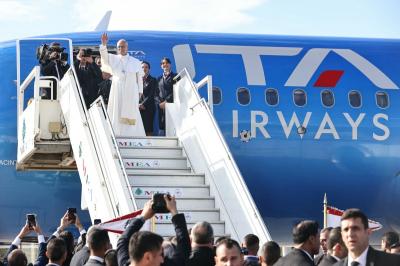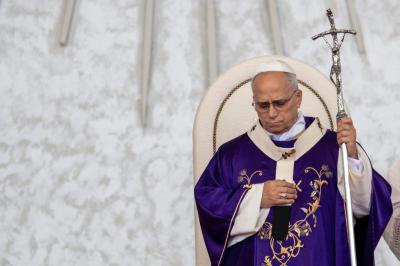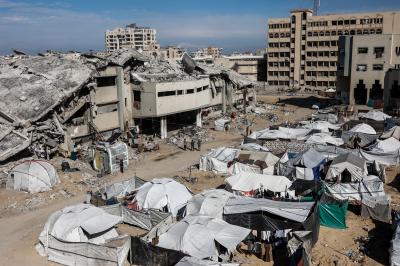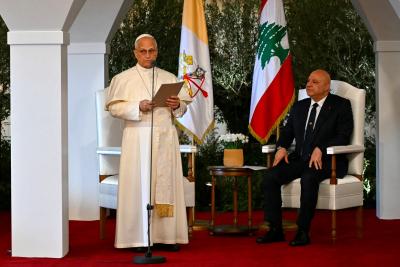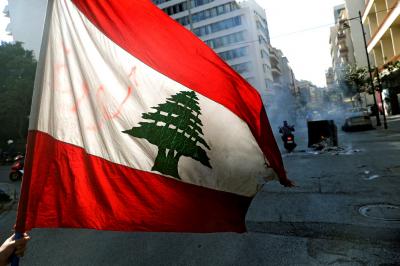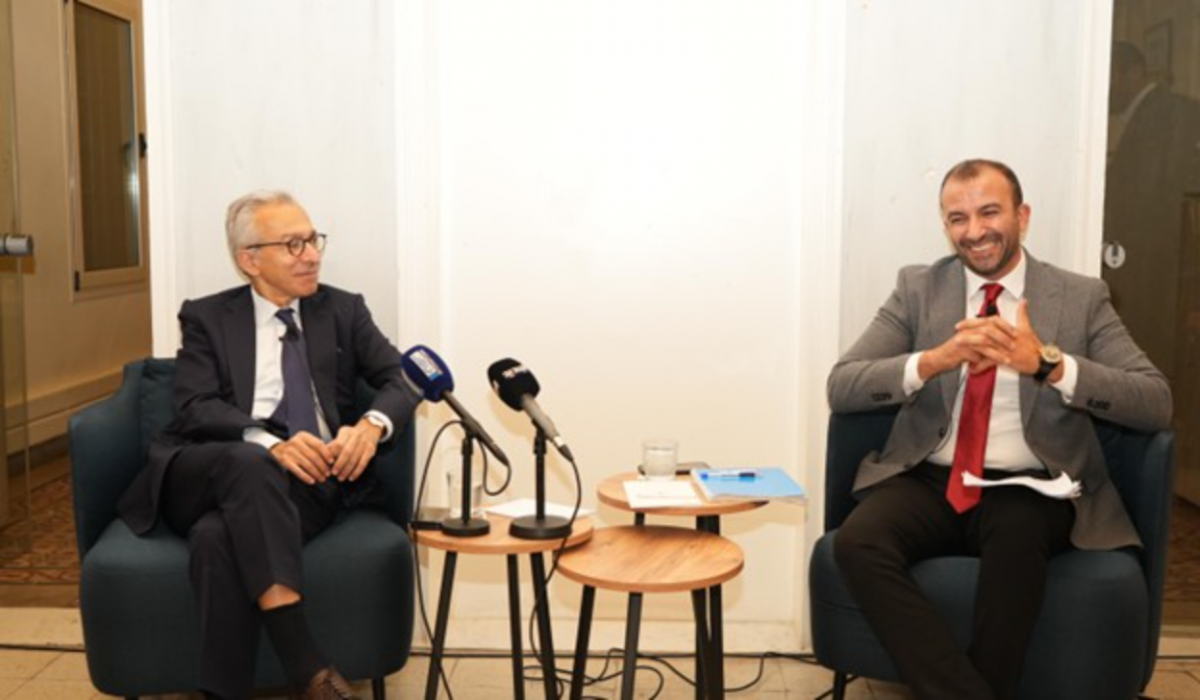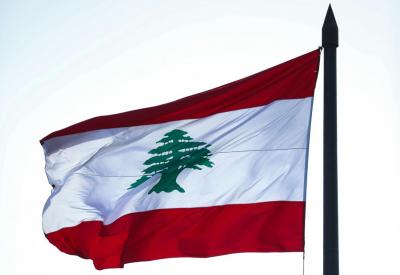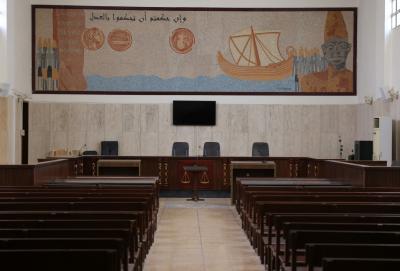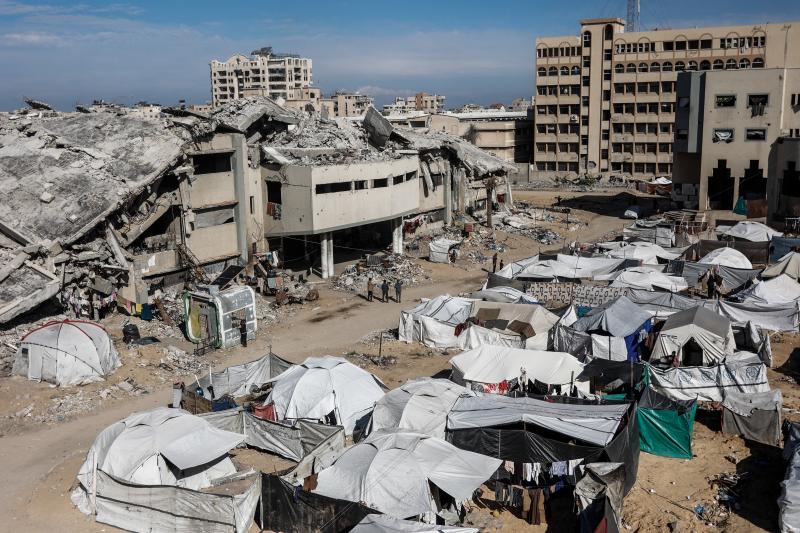Countries in crisis usually turn to the International Monetary Fund as a last resort for borrowing, once all other doors are closed. However, financing is not an end in itself; it is a means, often conditioned on implementing economic reforms to ensure the state’s ability to regain balance. In Lebanon’s case, the situation appears controversial—at least in theory. Over the past two years, the economy has managed to correct the imbalance in the balance of payments and restore budget equilibrium—two key pillars required for IMF support. On the other hand, officials keep stressing that reforms are a domestic necessity before being an international condition, and that they are pursued for the country’s own good. So what justifies the ongoing negotiations with the IMF?
“Certainly not for the money,” answered Minister of Economy and Trade Amer Bsat, when hosted by the “National Bloc” in one of its “Session with the Bloc” events, in which I had the honor of interviewing him. The minister took off his political gloves and engaged sincerely with the session’s goal: bringing key officials face-to-face with the public and opening an honest debate on sensitive national issues. “It’s no secret,” he said, “that the conditions for receiving funds—disbursed in complex stages—are very demanding. We will not commit to any condition that doesn’t serve our national interest.”
Relationship with the Fund
“If the negotiations are neither for money nor for following external dictates, then what is their purpose?” Bsat asked rhetorically. Simply put, according to him, there are two reasons. The first is to benefit from the IMF’s technical and advisory expertise—honed through decades of working with countries and helping them overcome economic crises. The second is to help bridge the wide credibility gap Lebanon suffers from. “Our international partners—states, institutions, and organizations—have lost confidence in Lebanon, and nothing can restore it except the IMF’s seal of approval on our reforms. We hope to eventually reach a non-financial agreement with the Fund that would spare us the high cost of borrowing.”
Bsat affirmed that “there is a short-term need to borrow to finance essential projects that we cannot cover from our limited tax and fee revenues,” dismissing fears that such loans would be repaid at the expense of social benefits or through new taxes and fees. Accordingly, he sees these loans as “a bridge to the next phase,” noting that, in IMF terminology, they do not endanger Lebanon’s debt sustainability. “We are fully aware and committed to not using loans indiscriminately,” he added. “But the desired growth cannot be achieved without investment.”
Growth on the Rise
Achieving growth remains fundamental to any economic recovery, especially if Lebanon seeks to move from a fragile system based on remittances and rentier structures to a productive economy focused on exports and expanding industrial and service bases. Still, the situation remains difficult. State institutions suffer from structural weakness, and relations between the public and private sectors continue to face chronic bureaucratic hurdles. What has been achieved so far may seem like a drop in the ocean of challenges, requiring much more time for a real breakthrough. Yet, according to Minister Amer Bsat, looking at the glass half full gives reason for optimism. In the first ten months of this year, the Lebanese economy recorded its best performance since 2011, with growth reaching 5%. The minister hopes this growth rate will rise by year’s end, especially if the country enjoys a period of stability and calm during the Christmas and New Year holidays.
Requirements for Sustainable Growth
The question remains, however, how fragile this growth is—given that it relies primarily on consumption. Estimates suggest that imports will reach around $20 billion, while actual exports barely exceed $2 billion. According to national accounts, remittances from abroad continue to fuel consumer demand, with total disposable income for consumption in 2023 reaching $37.4 billion, compared to an estimated GDP of $31.6 billion. Minister Bsat does not hide his concern about the nature of Lebanon’s recent growth, warning against a return to the pre-crisis model—one based on consumption instead of investment, imports instead of exports, and borrowing instead of production, all amid weak and inefficient state institutions. He stresses that shifting to sustainable growth requires an overhaul of the entire economic model.
To achieve that, Bsat proposes four key steps. First, reforming the banking sector—not just to restore depositors’ funds, but because any economic growth requires a strong banking system to sustain the cycle of deposits and lending. Second, enhancing private sector competitiveness by reducing high production costs—especially in electricity, telecommunications, infrastructure, and transport—while fighting corruption. Third, strengthening public institutions and improving the currently dysfunctional relationship between the public and private sectors, emphasizing the need to curb bureaucracy and modernize public administration with new competencies. Fourth, a comprehensive political and security transformation, as growth cannot occur without full state sovereignty—particularly over ports, the informal economy, security stability, and the control of arms outside state authority.
Bsat says this “five-point plan” could bring a genuine transformation to Lebanon’s economy. The equation, in his view, is clear: “Reforms lead to economic transformation and sustainable prosperity.” The hopes are great and legitimate, but they still collide with enormous challenges. Yet according to Bsat, that does not mean we shouldn’t start somewhere. “The starting point looks promising,” he said, “provided that policies continue and are not interrupted by the next government change expected in six months.”
Please post your comments on:
[email protected]
 Politics
Politics
